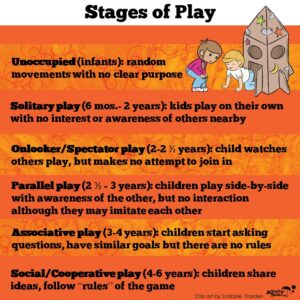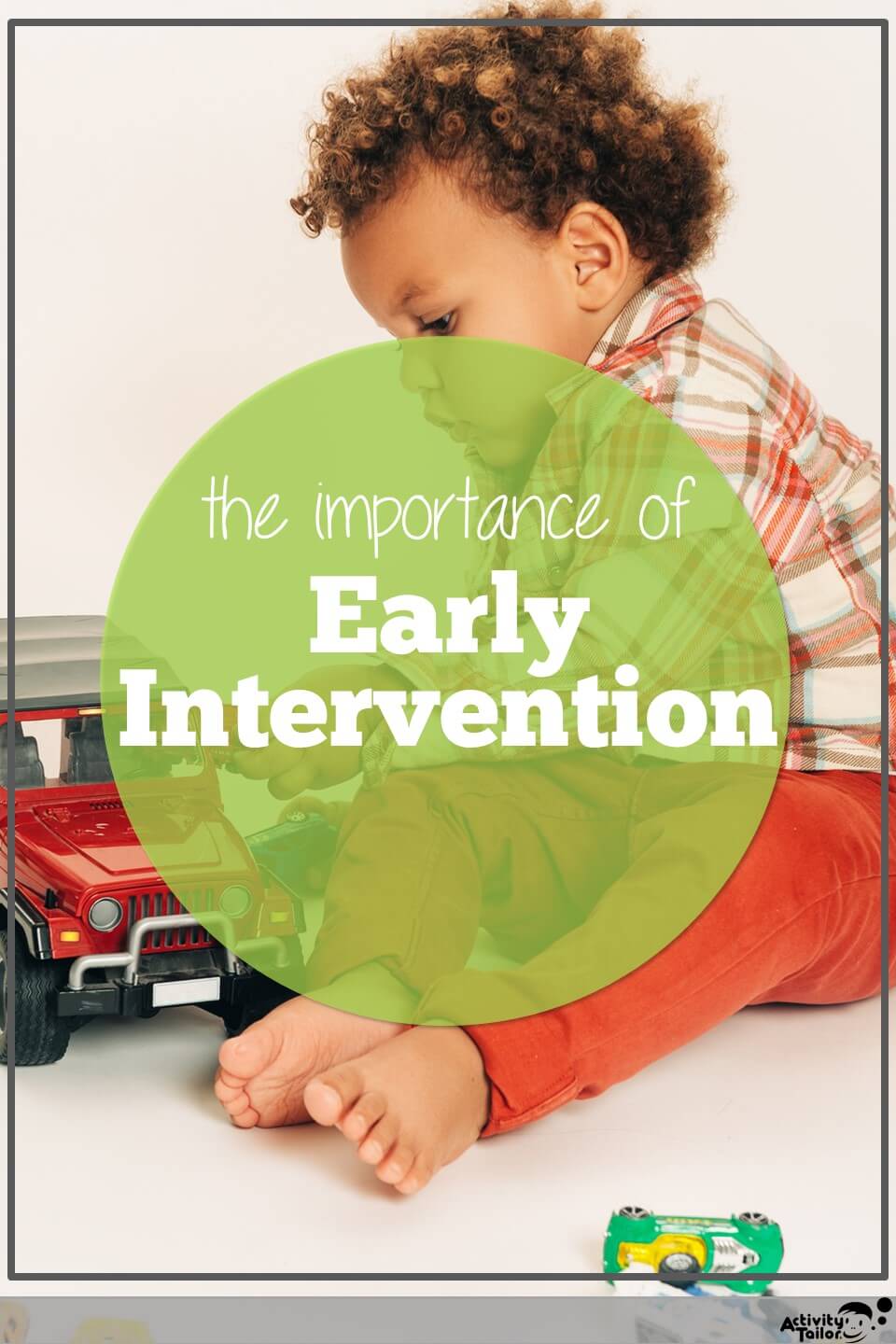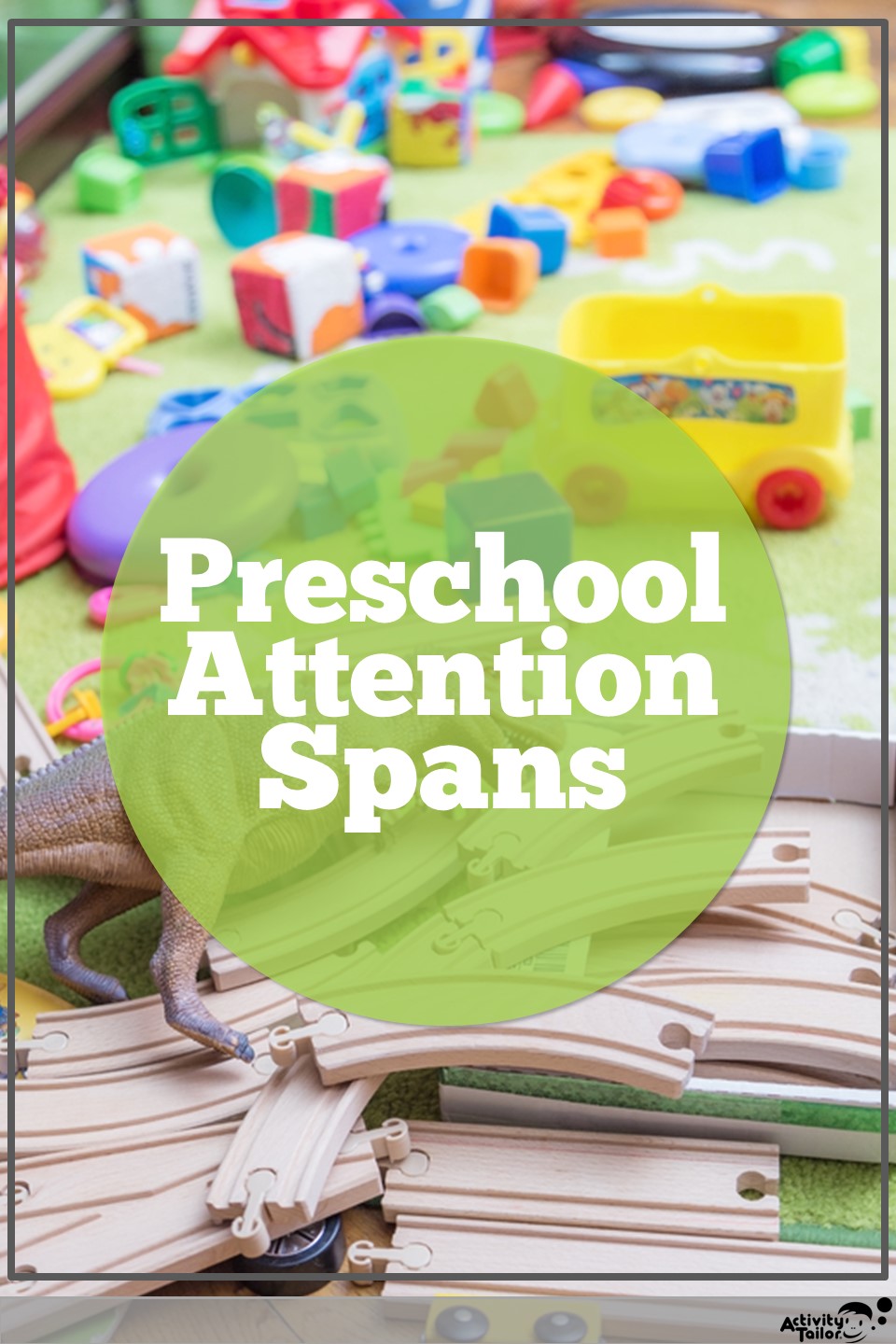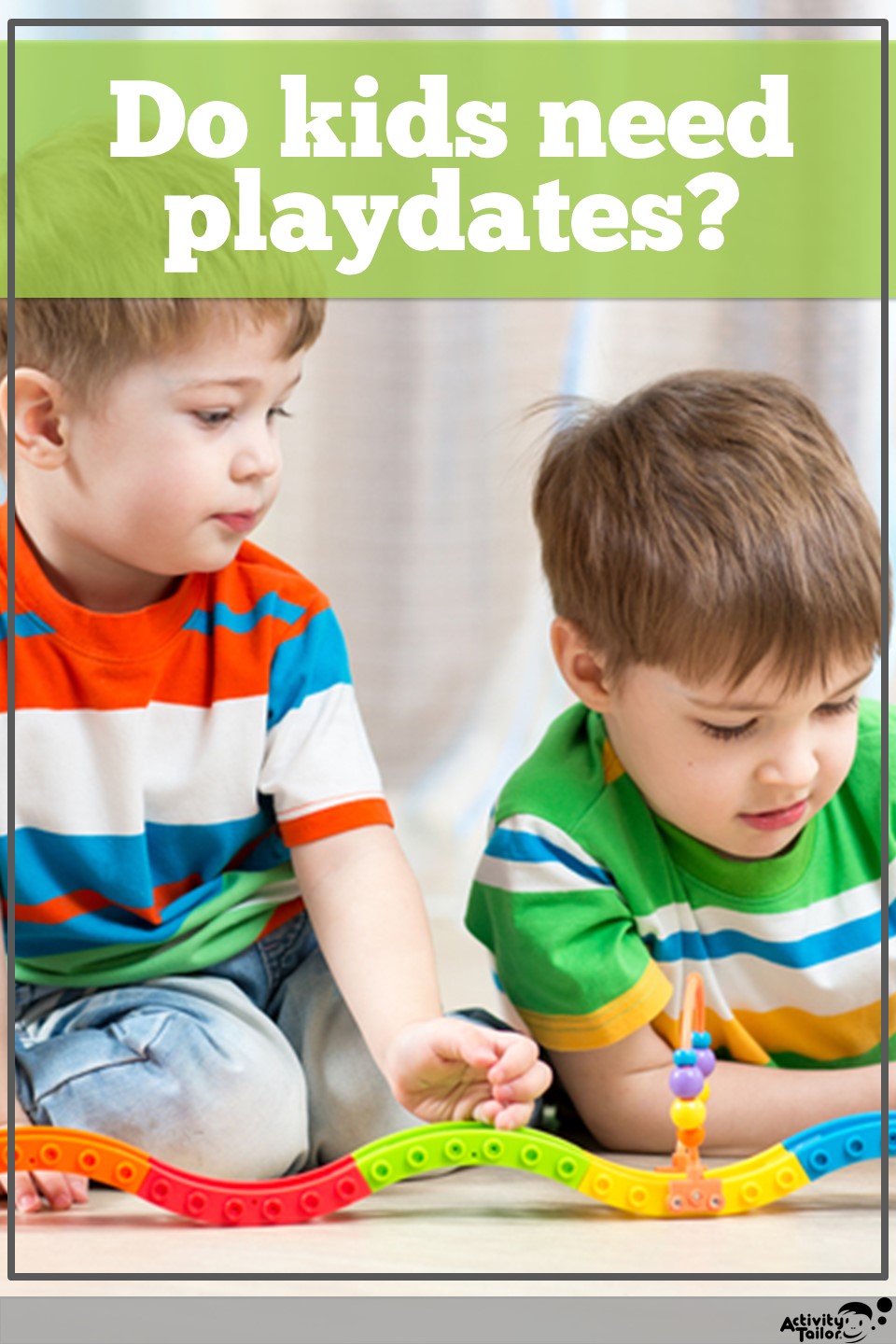
What are the stages of play?
We often say the goal of talking is that we want our children to be able to communicate their wants and needs to make their lives, and our lives, easier, but that just covers the basics! What we’re really moving towards is their ability to use language to communicate ideas and feelings and develop relationships with others. For children, this happens through play.
“Play is often talked about as if it were a relief from serious learning, but for children, play is serious learning.” Fred Rogers
There are many stages of play beginning in infancy and developing through school age. As children move from unoccupied and solitary play, they begin to use joint attention and imitation, two foundational language skills, in their social interactions. As they become more adept at play they’ll use language as the basis for their play.

While children will generally move through each stage, it’s important to realize that a child’s skills may look very different depending on the environment.
When a child is playing with familiar toys, in a familiar environment with a playmate with equal or more sophisticated skills their stage of play might be higher. In an unfamiliar environment, with unfamiliar toys and playmates, they may revert to a lower stage of play.
All of this is normal!
How do we accommodate a child who is behind in their play skills?
When adults play with children, they can accommodate for weak skills and support a child’s emerging abilities. However, little ones with their own fledgling play knowledge are unlikely to do the same.
This is the reason we often suggest you match a child’s “stage, not age” when it comes to choosing a playdate or even a classroom situation. Attempting to push a child’s play skills forward before they’re ready is seldom effective, and is more likely to negatively impact their self-esteem than result in meaningful, quicker progress.
As you review the stages, notice what a big role language plays! For children with delayed language skills, there may be a lag in acquiring later stages of play. Early intervention is key. For immediate support, purchase the Intentionally Parenting Late Talkers workbook or the How to Teach Talking webinar.





